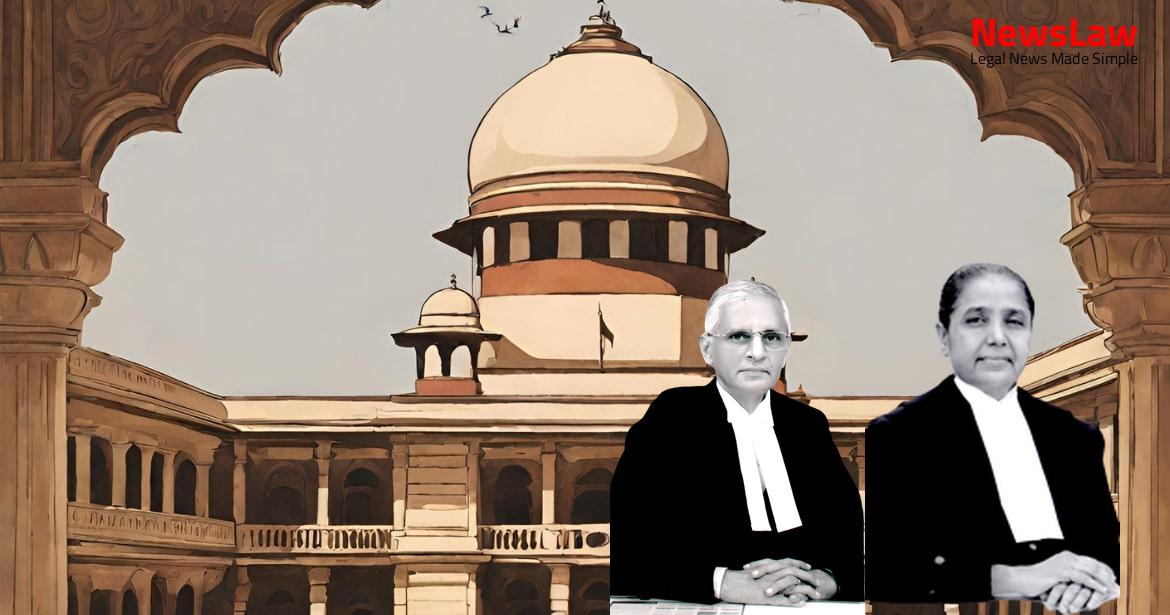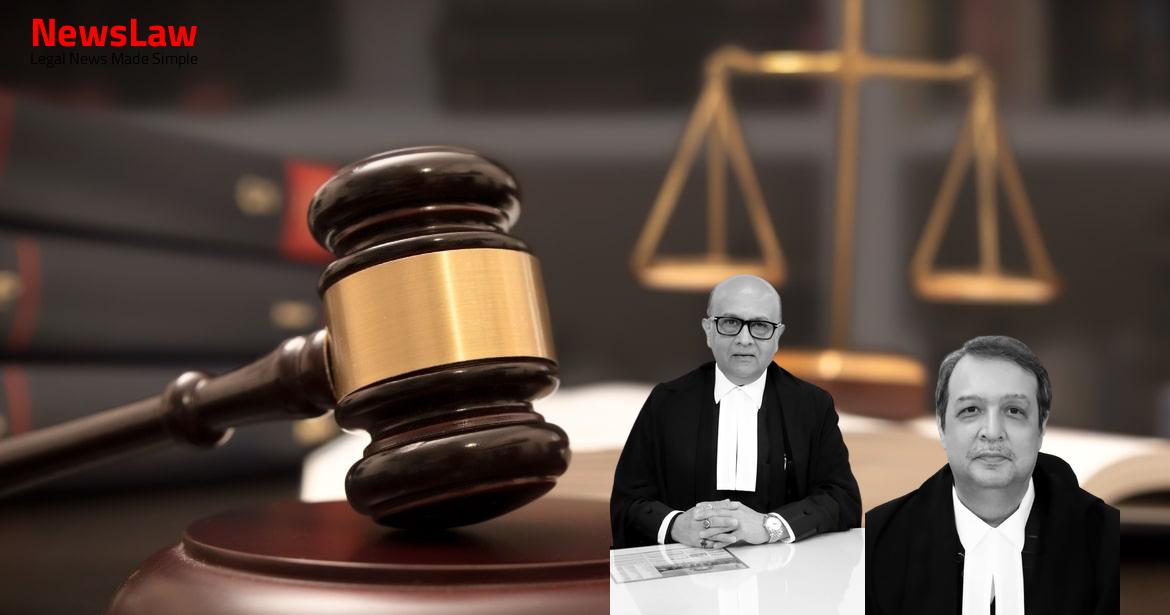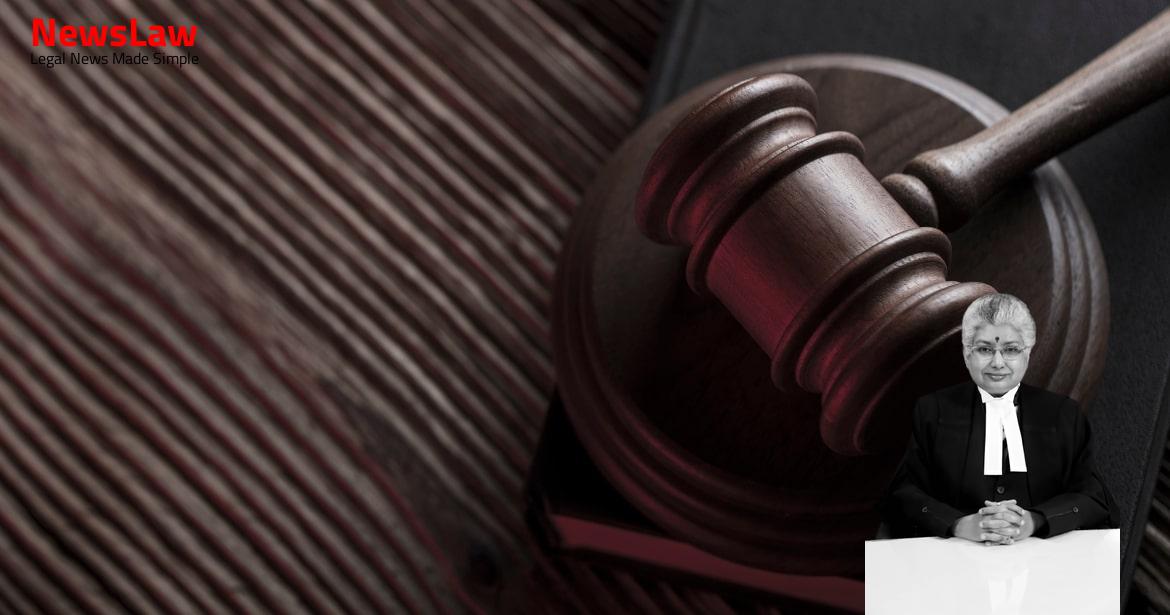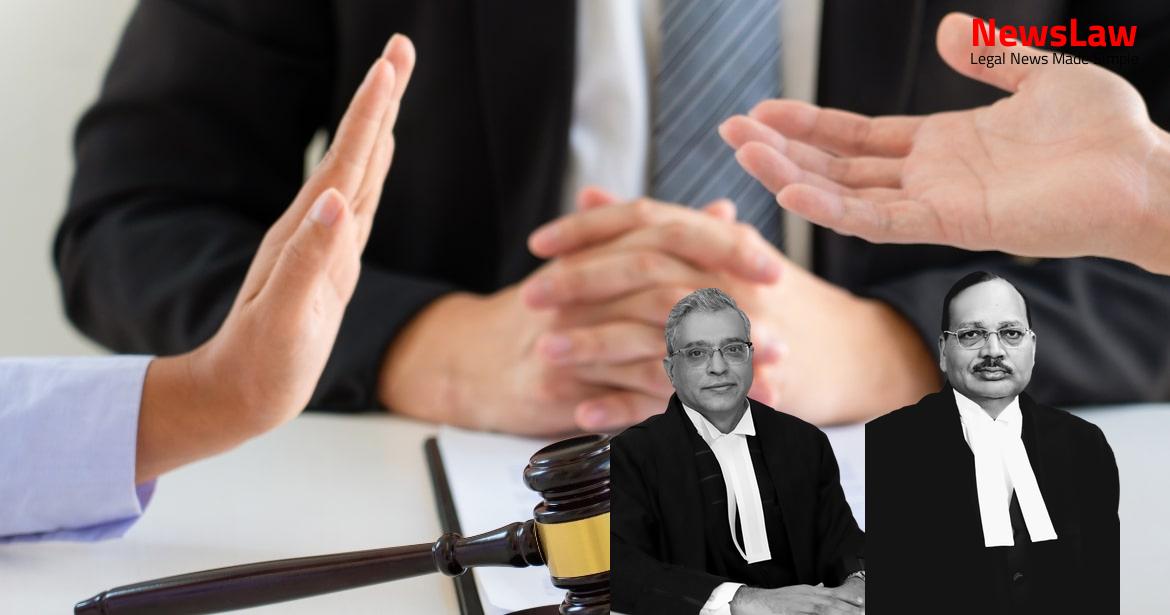The case of State of UP vs. Lekhpal exemplifies the crucial legal principles governing fair enquiries and due process rights in disciplinary matters within the Government. The respondent, Lekhpal, was subject to serious allegations leading to his dismissal. However, the Supreme Court’s recent judgment emphasized the necessity of conducting thorough and impartial enquiries, thereby granting individuals the opportunity to present their side of the story. This case sheds light on the importance of upholding fair procedures in determining the veracity of misconduct charges. #LegalCase #SupremeCourt #DueProcess #EnquiryRights
Facts
- The respondent, who was working as Lekhpal in the Revenue Department of the Government of U.P., was suspended on 17.05.2008 during his posting in District Mainpuri.
- Allegations against the respondent included removing pages from official records, issuing false certificates, making false entries in revenue records, and illegally mutating lands.
- Enquiry held against the respondent found him guilty of all charges, leading to a notice for dismissal dated 17.12.2008.
- Despite being granted time to respond, the respondent failed to substantiate his arguments and pressurized authorities by making complaints.
- The respondent was ultimately dismissed from service on 07.02.2009, with his appeal and revision also being dismissed.
- Multiple attempts through writ petitions were made by the respondent to challenge the dismissal orders.
- The High Court set aside the dismissal order in a judgment dated 06.05.2016, leading to the State of UP filing the current appeal.
- The learned Single Judge dismissed the writ petition.
- The respondent was found to have committed serious illegalities and irregularities during his service.
Also Read: High Court Acquittal Case of State of Uttar Pradesh v. Jai Prakash
Analysis
- The Division Bench found that the disciplinary proceedings and dismissal order against the respondent were flawed due to lack of opportunity given to the respondent by the Enquiry Officer.
- Referring to key judgments like State of Uttaranchal and others v. Kharak Singh and Associated Cement Co. Ltd. v. The Worker, the Division Bench emphasized the importance of conducting a fair enquiry to determine the veracity of misconduct charges against a worker.
- The Division Bench highlighted that enquiries should not be mere formalities but should genuinely aim to establish whether the alleged charges against the worker are proven or not.
- It was noted that the entire disciplinary process was tainted as the enquiry officer failed to provide the respondent with an opportunity and unilaterally submitted the enquiry report.
- No full-fledged enquiry was conducted by the Enquiry Officer
- The High Court determined that the order of removal was rightly set aside
Also Read: Judgment Review: Supreme Court’s Ruling on the Capital Punishment Appeal
Decision
- The respondent shall not be entitled to arrears of salary from the date of termination till the date of reinstatement.
- The Disciplinary Authority may direct the earlier enquiry officer to continue the proceedings if available, or appoint a new enquiry officer if necessary.
- The enquiry officer must allow the respondent to examine himself or his own witnesses if desired.
- Appropriate orders shall be passed by the Disciplinary Authority for the interregnum period between termination and reinstatement.
- The decision to proceed with the enquiry or not rests with the concerned authority.
- A de-nova inquiry may be conducted from the stage of conducting enquiry if the authorities choose to continue.
- If the enquiry proceeds, it must be completed within six months from the date of reinstatement.
- The respondent must cooperate for the timely completion of the enquiry.
- Previous dismissal orders are set aside, and the appellant is directed to reinstate the respondent within four weeks.
- The respondent shall be entitled to salary in the same pay scale as on the date of removal from service from the date of reinstatement.
Also Read: Synergy and Solution Incorporation v. Vipin Dhopte – Landmark Judgement by Supreme Court of India
Case Title: STATE OF U.P. Vs. VINOD KUMAR KATHERIA
Case Number: C.A. No.-000149-000149 / 2017



